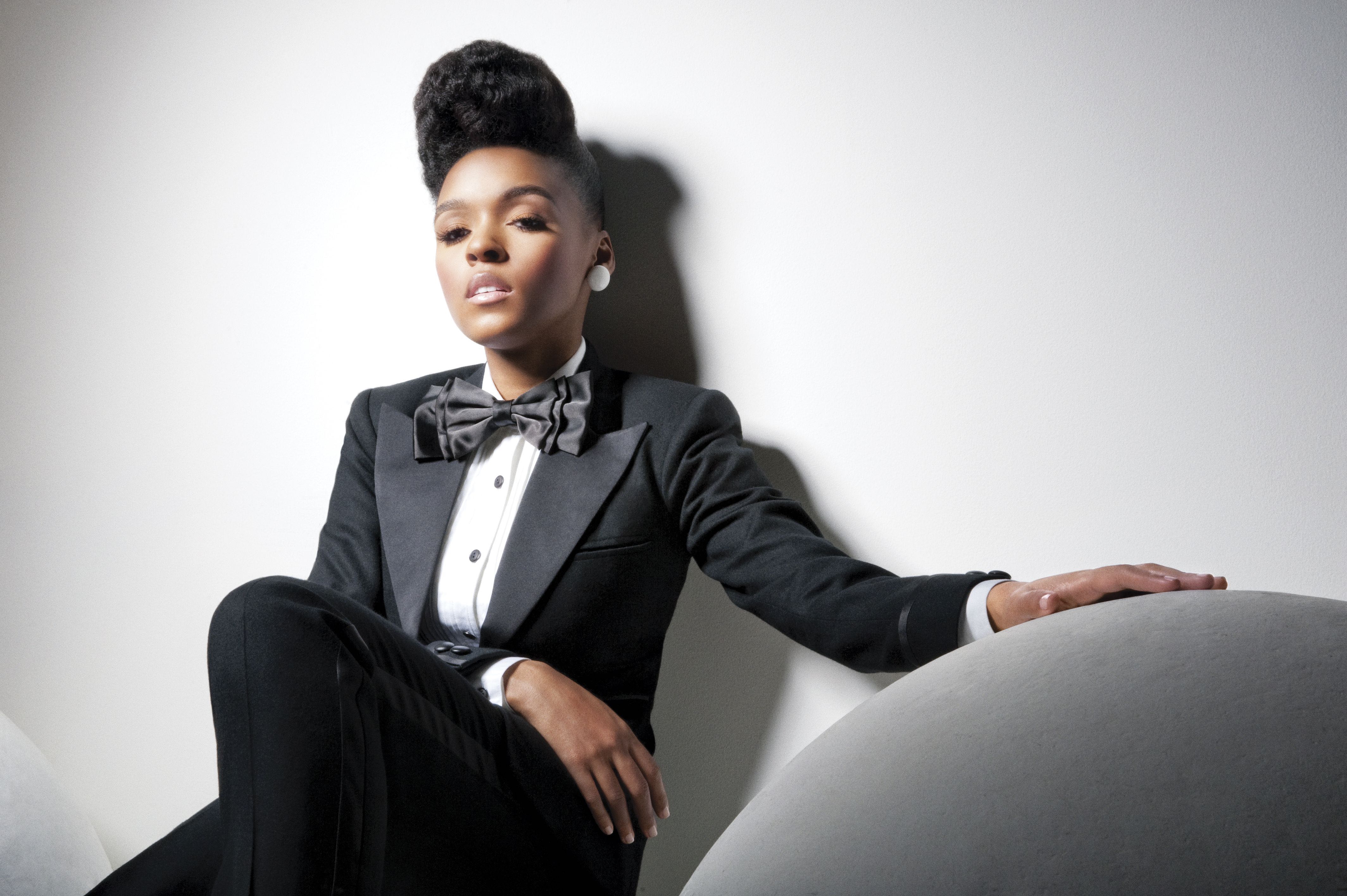Whatever its faults, the ’10s brought plenty of new musical talent to the table. Kendrick Lamar, Frank Ocean, Lana Del Rey, Run the Jewels, and Billie Eilish all dropped star-making debuts on us over the course of this past decade—but that was really just the tip of the “new blood” iceberg.
Here, then, are ten other incredible debut albums from 2010-2019, some of which you may already know and love, some of which you may have missed altogether, and some of which have even been eclipsed by the artists’ subsequent releases.
Janelle Monáe — The ArchAndroid
Though she’d released a well-received Metropolis, Suite 1: The Chase Suite EP three years earlier, Ms. Monáe still took a lot of people by surprise in 2010 with this genre- (and mind-) bending two-part Afrofuturist/sci-fi concept album. Theatrical as a mid-’70s Genesis album, funky as classic P-Funk, musically ambitious as Sign o’ the Times–era Prince, and offering an unapologetically progressive socio-political viewpoint, The ArchAndroid was a stunning full-length statement from a visionary artist. Of course, she would later go on to release two records that are arguably even better: 2013’s The Electric Lady, and 2018’s Dirty Computer.
Tame Impala — Innerspeaker
Fuzz freaks and psych heads everywhere rejoiced over this Australian guitar band’s full-length 2010 debut, which mixed the lysergic (and bucolic) sounds of classic UK psychedelia with swirling, shoegaze-y flourishes and modern DIY insouciance. Kevin Parker’s merry band have since released two other fine slabs—and a fourth is supposedly on the way—but Innerspeaker has an intrinsic magic to it that Tame Impala have never been fully able to recapture.
Ghost — Opus Eponymous
One of the most controversial albums of 2010, the full-length debut by these Swedish Satanists stirred up countless arguments in the metal world. Was it a joke? Did it even really count as heavy metal? And just who were these guys, anyway? In retrospect, Opus Eponymous turned out to be merely the first blast of genius from Tobias Forge, whose flair for infusing heavy sounds and macabre lyrics with the melodicism of The Beatles and ABBA has only sharpened in the ensuing years, as indicated by Ghost’s 2018 masterpiece Prequelle.
Triptykon — Eparistera Daimones
No twenty-first century newcomer he, Thomas Gabriel Fischer was already long legendary for having founded extreme metal legends Hellhammer and Celtic Frost by the time he formed Triptykon in 2008. But even though Eparistera Daimones began life as a follow-up to Celtic Frost’s Monotheist—before that band’s final breakup sent Fischer back to the drawing board—it only took one listen to the album to understand that Triptykon represented a bleakly powerful (and typically uncompromising) new chapter to Fischer’s storied career.
Deafheaven — Roads to Judah
This past decade saw the boundaries of heavy metal being pushed in every direction, and the emergence of Deafheaven was part of that. Though derided by purists as “hipster metal” because neither their appearance nor their sound fit the traditional metal mold, the band’s icily atmospheric 2011 debut (and their subsequent albums) helped to expand the reach of blackgaze—a potent mixture of blackmetal and shoegaze—to the masses.
Jake Bugg — Jake Bugg
Born in that epochal Britpop year of 1994, this English singer-songwriter’s hooky choruses and street-smart attitude made you wonder if he’d been rocking out to Oasis while still in the crib. But as his remarkably confident 2012 debut proved, Bugg was no mere throwback to a throwback; his songs (many of them written with Snow Patrol’s Iain Archer) and stripped-down sound cast a wider net, touching upon everything from Donovan to Elvis Presley yet also managing to sit squarely in the here and now.
Savages — Silence Yourself
Inspired by British forebears like Gang of Four, The Stranglers, and Siouxsie and the Banshees, but radiating plenty of twenty-first century malaise, Savages’ bracing 2013 debut rightfully knocked a lot of listeners on their asses. Though plenty of other bands had mined similar post-punk territory in recent years, Silence Yourself’s sharp and angular music didn’t seem to be motivated by fad or fashion; it was merely the perfect delivery system for the band’s furious and confrontational songs.
Courtney Barnett — Sometimes I Sit and Think, and Sometimes I Just Sit
With its wittily observant lyrics, shrugged-shouldered attitude, and a jovially shambolic sound that split the difference between ’60s garage, ’70s pub rock, and ’90s lo-fi, this 2015 album established Australian singer-songwriter Barnett as an alt-rock troubadour to be reckoned with. Her muted 2018 follow-up, Tell Me How You Really Feel, wasn’t quite as critically well-received, but that’s one of the hazards of leading off your career with such a wonderful debut.
The Lemon Twigs — Do Hollywood
This astonishingly tuneful 2016 debut from teenage brothers Brian and Michael D’Addario made it sound like the boys had spent years locked in their family basement with only a couple of pianos and a stack of Todd Rundgren, Sparks, and Electric Light Orchestra albums for company. Winningly weird, chock-full of head-spinning melodies, and proudly out of step with the rest of the world, Do Hollywood was joyful pop escapism of the highest order.
Zeal & Ardor — Devil Is Fine
Even in this age of rampant stylistic and cultural mashups, Zeal & Ardor’s mixture of black metal and negro spirituals probably wasn’t something anyone saw coming. The brainchild of Swiss-American musician Manuel Gagneux, the project was inspired by the question, “What if American slaves had embraced Satan instead of Jesus?”—a question Gagneux answered with 2017’s Devil Is Fine, a potent collection of tracks that, for all their initial mindfuckery, ultimately felt more stirring than sacrilegious.







